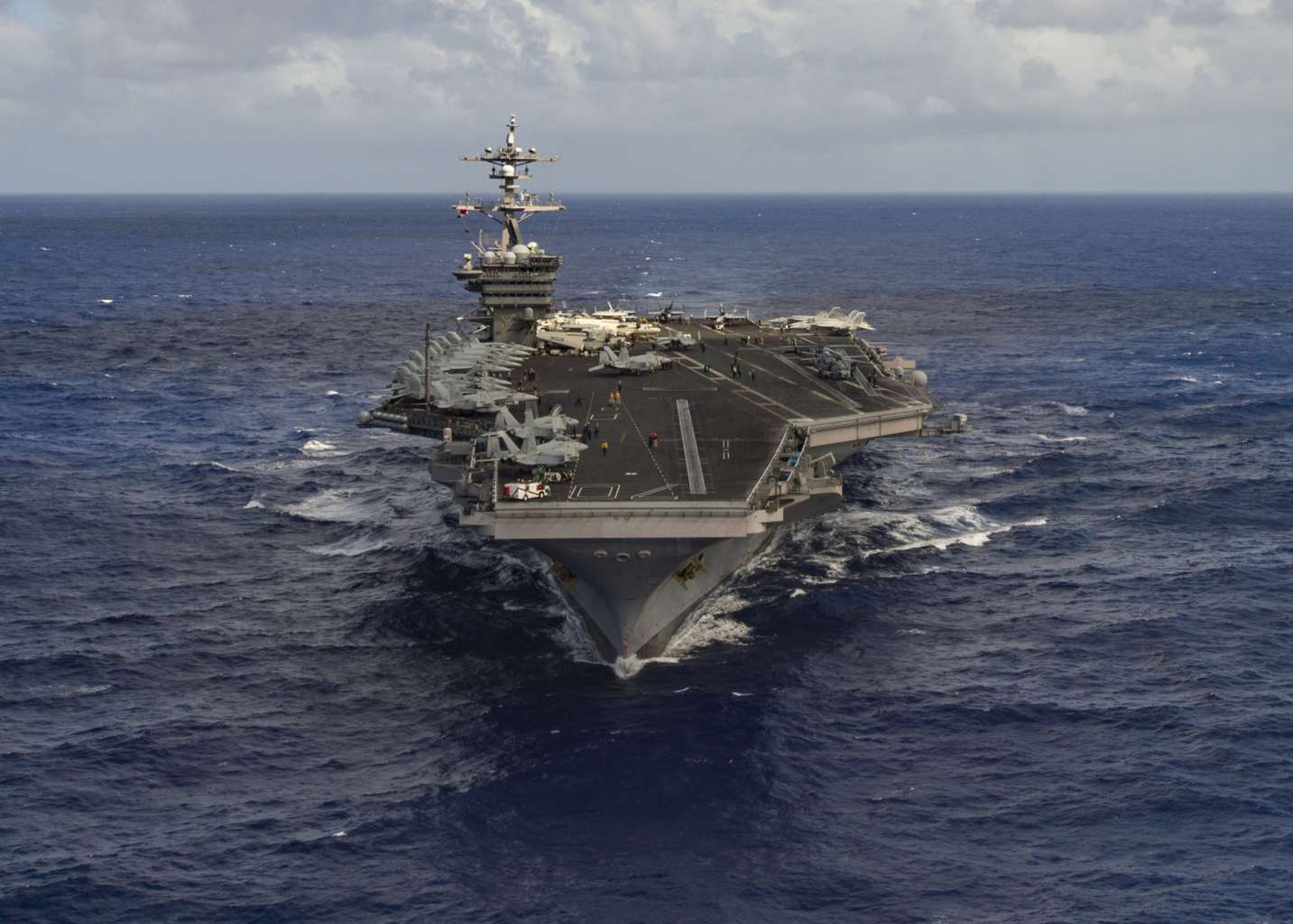Japan plans joint drills with US in show of force in Korean peninsula: Report
Sign up now: Get insights on Asia's fast-moving developments

Aircraft carrier USS Carl Vinson (CVN 70) transiting the Pacific Ocean, on Jan 30, 2017.
PHOTO: REUTERS
TOKYO - Japan plans to hold joint drills with US warships that are en route to the Korean peninsula in a military show of force to deter Pyongyang from further provocations, reports said on Wednesday (April 12).
The drills will involve helicopter landings by Japan's Maritime Self Defence Force on each other's ships as well as communication exercises, two sources told Reuters.
A US naval strike force - led by the nuclear-powered aircraft carrier USS Carl Vinson - left Singapore for the peninsula last Saturday, and is expected to reach the Korean peninsula around April 25.
"Japan wants to dispatch several destroyers as the Carl Vinson enters the East China Sea," one of the sources was quoted as saying.
Japan's Foreign Ministry has also issued a travel notice for Japanese nationals travelling to or residing in South Korea to pay attention to the situation in the Korean peninsula. While it has stressed the current situation "does not immediately affect the safety of Japanese", it is unusual that an alert has been issued on Pyongyang's missile and nuclear weapons development.
South Korea's Unification Ministry spokesman Lee Duk Haeng, however, said there is no need to worry about security in the Korean peninsula, and that Seoul is working with other governments to manage the tensions.
North Korea has said the US deployment was "reckless" and it was "ready for war". Its military chief Hwang Pyong So said the country is prepared to "mount a pre-emptive nuclear attack on South Korea and the United States and wipe them out without traces if they attempt to launch a war of aggression".
But US Defence Secretary James Mattis said on Tuesday of the deployment: "There's not a specific demand signal or specific reason we're sending her up there.
"She's stationed in the Western Pacific for a reason. She operates freely up and down the Pacific and she's on her way up there because that's where we thought it was most prudent to have her at this time."
The USS Carl Vinson was originally scheduled to make port calls in Australia. "I believe she was originally headed in one direction for an exercise and we cancelled our role in that exercise," said Mr Mattis.
Defence expert Tosh Minohara of Kobe University told The Straits Times that it was "about time" for joint drills between the Japan and US navies.
"US and Japan need more operational-level training, and so this is to be welcomed in light of the current security environment," he said.
But there are risks the move will heighten paranoia in Beijing, which has its own military ambitions and is embroiled in a territorial dispute with Tokyo over a group of uninhabited islets in the East China Sea known as the Senkakus or Diaoyu islands.
Four Chinese patrol ships temporarily entered Japanese waters near the islands on Monday, in the ninth such incursion this year, Japanese Coast Guard officials said.
Dr Minohara said China needs to quickly realise the joint drills - and any action taken by the US-Japan-South Korea security triangle - is "not directed at them but is a direct consequence of them not acting more forcefully towards North Korea".
China is regarded as a major economic benefactor and political ally to the impoverished North Korea, although it has banned all imports of coal from the country until the end of the year.
The latest developments come as tension in the region rises, with the reclusive North said to be gearing up for nuclear or ballistic missile tests in a show of its prowess to mark the 105th year of founder Kim Il Sung's birth this Saturday.
US President Donald Trump, who has said his country is ready to go it alone against North Korea, said on Twitter that Pyongyang was "looking for trouble" and the US would "solve the problem" with or without Beijing' s help.
He has threatened to impose secondary sanctions on Chinese banks and companies that continue to do business with North Korea, and said China will get a better trade deal if it exerts more pressure on North Korea.
Washington's threats of a unilateral strike has prompted Tokyo to seek reassurances that its ally will discuss any military action against the rogue state beforehand, sources told Nikkei Asian Review, so as to "prevent a sudden move from diplomacy to force".
Japan is disquieted after Mr Trump ordered a sudden missile strike on a Syrian military base last week in retaliation for what was suspected to be a poisonous gas attack that killed
at least 87 people, including more than 30 children.
at least 87 people, including more than 30 children.
Military experts believe the strike was also meant to intimidate Pyongyang, which has said the test-firing of four simultaneous ballistic missiles towards Japan last month was a dry run of a strike on US bases in Japan in a rare public pronouncement of its targets.
Dr Masashi Nishihara, who heads the Research Institute for Peace and Security in Tokyo, told The Straits Times: "Japan cannot have the US act alone."
"Article 5 of the Japan-US Security Treaty stipulates that Japan and the US together respond to any armed attack on a Japanese territory. North Korean action against US bases in Japan will affect the security and public safety of Japan and the Japanese."
In the latest of its tests, North Korea launched an extended-range Scud rocket last week that flew 60km before it suffered an in-flight failure.
waltsim@sph.com.sg


